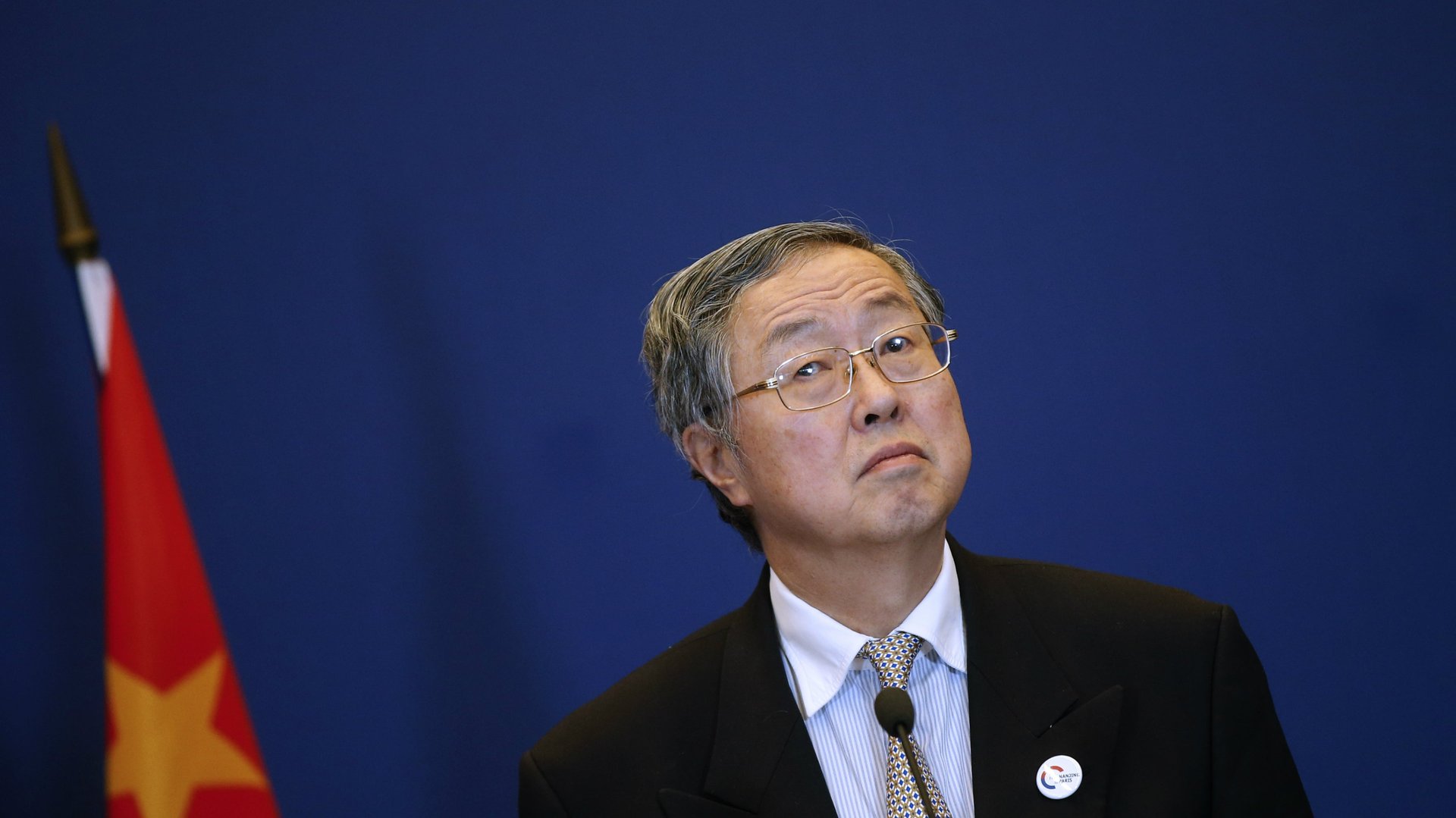China is pretending like it didn’t just raise interest rates
Hours after the US Federal Reserve raised interest rates yesterday, China’s central bank followed suit, hiking rates for the second time this year. But, wait—no it didn’t.


Hours after the US Federal Reserve raised interest rates yesterday, China’s central bank followed suit, hiking rates for the second time this year. But, wait—no it didn’t.
Instead, the People’s Bank of China said its ”upward rate move was not at all an interest rate hike,” in a statement (link in Chinese). Translation: Nothing to see here! Move along!
In fact, the PBoC raised short-term policy rates on the interbank market, which it has begun managing instead of its older tools, the bank lending and deposit benchmark rates. However, as the statement made clear, only raising those traditional benchmarks are considered official rate hikes.
“So why is the PBoC trying so hard to sound dovish?” asks Chen Long, an analyst at research firm Gavekal.
After all, the Chinese economy is revving up. Data from the first two months of 2017 were unexpectedly strong—in particular, a whopping 25% leap in housing sales versus the previous year. However, an unusually important Communist Party Congress will be held in the autumn, in which party chairman Xi Jinping is expected to consolidate power further. The general consensus is that once things are looking good ahead of the congress, the burst of economic activity will be allowed to burn itself out.
“The PBOC probably shares this view, and so feels that growth and inflation will ease anyway,” Chen wrote in a note today. “And it certainly wants to avoid getting blamed for a sharp slowdown just ahead of the Communist Party Congress.”
Hiking benchmark rates “would add significant stress to highly leveraged corporate and local government borrowers,” says Tom Orlik, an economist at Bloomberg Intelligence. That’s not an appealing option for a country with debts worth around 260% of GDP.
The steady decline of producer-price inflation is encouraging for those who fear an overheated economy. But the real wildcard is the housing market, which tends to be controlled by local governments. If the property market keeps picking up steam, stoking inflation more broadly, the central bank will have to raise rates, for real, and face the consequences.